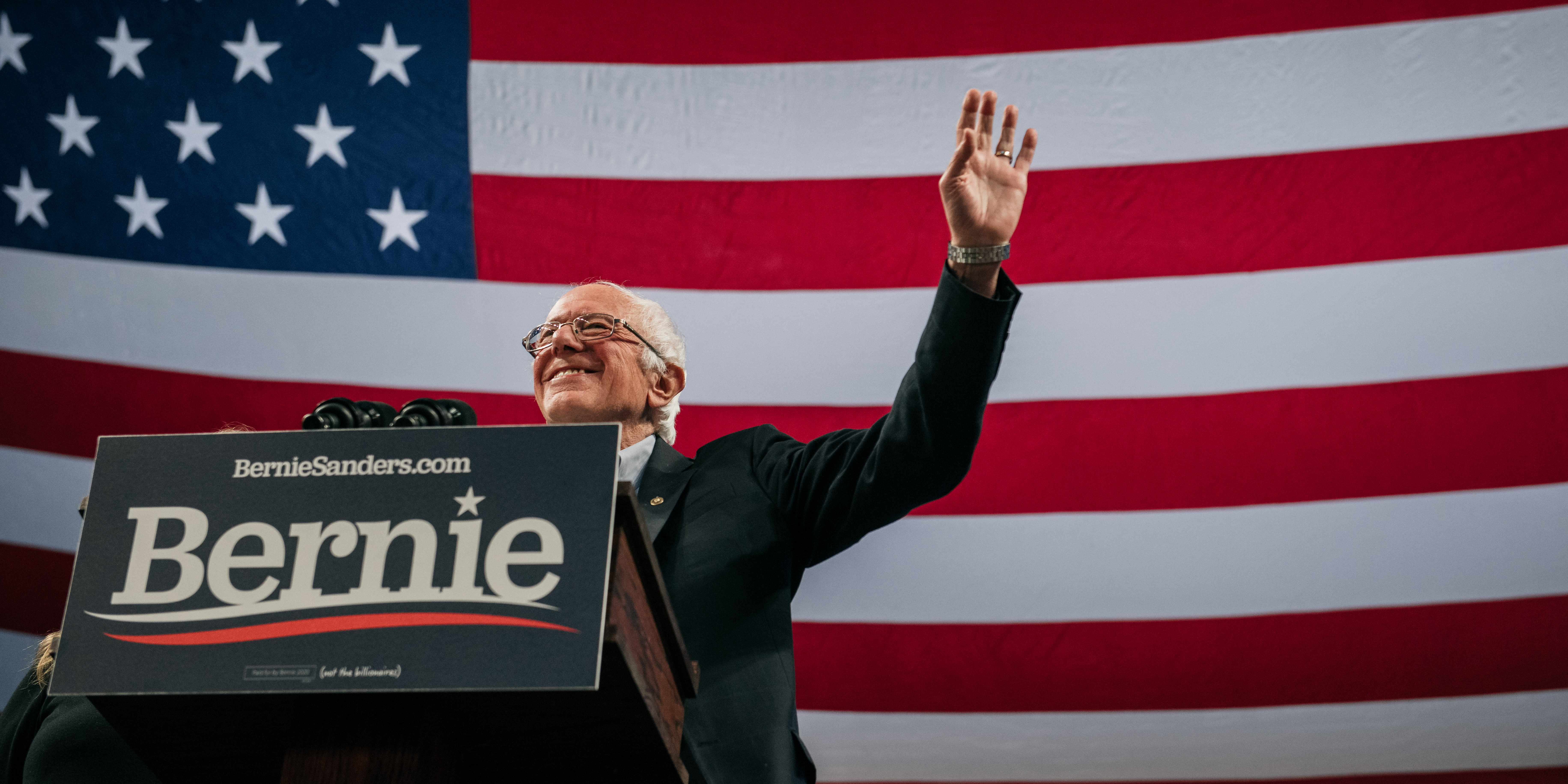- The Democratic presidential nomination process is continuing today, March 17, with three more Democratic primaries and caucuses.
- The Democratic nomination isn’t decided by who wins the most votes but by which candidates receive the most delegates to represent their campaign.
- The number of delegates each state gets is decided by numerous factors including how big the state is, how Democratic it leans, when it votes, and whether it votes with its neighbors.
- At the convention, a candidate will be nominated when a simple majority of 1,991 out of 3,979 total pledged delegates support a given candidate.
- Visit Business Insider’s homepage for more stories.
The Democratic nomination process is continuing today, March 17, with three Democratic primaries and caucuses in Florida, Illinois, and Arizona.
Starting with the Iowa caucuses on February 3 and continuing into June, all 50 US states and seven US territories are holding a Democratic primary election or caucuses to allocate delegates to the candidates.
The Democratic nomination isn’t decided by who wins the most votes but by which candidates receive the most delegates – people selected by each campaign from every state or district – to represent them at the Democratic National Convention, taking place July 13-16 in Milwaukee.
Here’s where the candidates stand in the delegate race right now, including results from Super Tuesday:
The DNC has four states that vote early in every election cycle: Iowa on February 3, New Hampshire on February 11, Nevada on February 22, and South Carolina on February 29. While these primaries hold disproportionate importance in the process by going first, they account for just 4% of the total pledged delegates.
With such a crowded 2020 field, numerous candidates inevitably fail to meet the delegate targets or drop out altogether.
Already, former Mayor Pete Buttigieg of South Bend, Indiana, Sen. Amy Klobuchar of Minnesota, Sen. Elizabeth Warren, and former Mayor Mike Bloomberg have suspended their campaigns after earning a combined 134 pledged delegates.
When candidates drop out, the delegate slots they have earned - which are filled by real people - can be told either to support a rival candidate or to be released to vote for whomever. In many states, state-level delegate slots earned by candidates who later drop out are automatically re-allocated to the next-highest performing candidate.
Now that Buttigieg, Klobuchar, and Bloomberg have all endorsed Biden, they will most likely ask the pledged delegates they've earned to also support Biden at the convention.
Democrats allocate most of their pledged delegates proportionally by legislative district, in addition to allocating at-large and PLEO (party leader and elected official) delegates based on the statewide vote breakdown.
Most states allocate their delegates by congressional districts, but some, like Texas and New Jersey, use state legislative districts instead.
While delegates are allocated proportionally, in nearly every state the minimum threshold to earn delegates is 15% of the vote. This means candidates must break 15% of the vote either at the district or state level to earn any delegates at all.
Every state has a certain number of delegates to allocate, which is determined by numerous factors including how big the state is, how Democratic it leans, when it votes, and whether it votes with its neighbors.
At the convention, a candidate will be nominated when a simple majority of 1,991 out of 3,979 total pledged delegates support a given candidate.
Fifteen states, the territory of American Samoa, and Democrats who live abroad held Democratic primaries or caucuses on Super Tuesday, which took place March 3, allocating 35% of the total delegates on that date alone.
After Super Tuesday, primary dates get tactical, since states receive a delegate bonus for scheduling their primaries later in the cycle and holding their primaries on the same day as neighboring states.
In general, states want to balance their role in narrowing the size of the field with having the final say on who wins by having the most possible delegates at the convention.
Some states - the ones on Super Tuesday - are willing to leave all the extra delegates on the table to get the first bite at the apple. Other states will wait until the last possible vote - smaller states like New Jersey and New Mexico - to gain outsize representation at the convention and potentially a shot at playing kingmaker.
Sixty percent of delegates will be decided after the March 17 primaries, and after the April 28 "Acela primaries," 90% of the total delegates to the convention will have been allocated, meaning we'll have a pretty good idea of who is favored to win the nomination by that point.
- Read more:
- LIVE UPDATES: See the full results of the Florida, Arizona, and Illinois primaries
- Candidates who've dropped out of the presidential race are endorsing either Biden or Sanders. Here's whose side they're on and why.
- Here's how Democrats will elect their presidential nominee over the next several months
